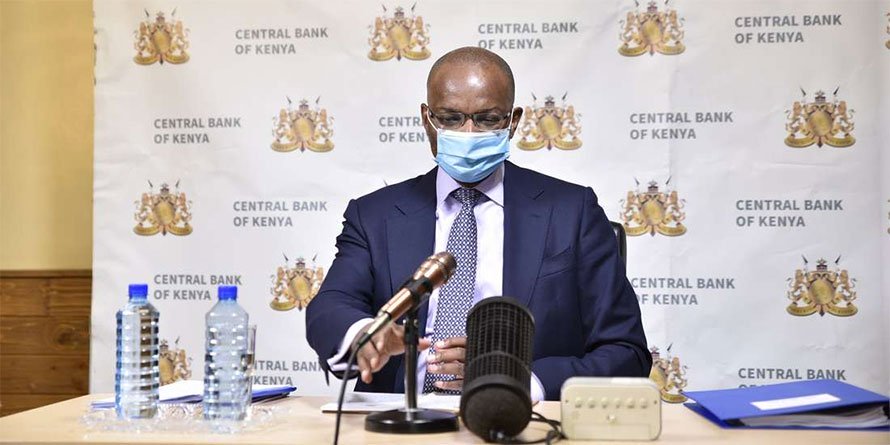Central Bank of Kenya Governor Patrick Njoroge. FILE PHOTO | NMG Kenya’s top seven banks listed on the Nairobi Securities Exchange (NSE) have set aside Sh31.7 billion in the half year ended June for an expected increase in bad loans as restrictions to combat Covid-19 raise the spectre of large-scale defaults.
The provisions, which rose by a combined Sh22.8 billion in the review period from Sh9 billion a year earlier, represent the amounts banks expect to lose from lending to households and corporates.
The figures are an early indication of the damage the crisis is expected to inflict on lenders who for years have reported double-digit growth in profits and paid handsome dividends.
Already, the Central Bank of Kenya (CBK) has ordered banks to seek its approval before declaring dividends for the current financial year, a directive focused on ensuring lenders have enough capital to ride out the Covid-19 pandemic.
The provisions for bad loans cut the lenders’ net earnings by a third to Sh32.5 billion, making it the dominant factor in determining their profitability following the pandemic, overshadowing growth in interest income and fees on transactions.
KCB Group , Equity Group and Absa Bank Kenya are among the lenders that raised their provisions for bad debt by the largest amounts at Sh7.9 billion, Sh7.1 billion and Sh3.7 billion respectively.
This indicates their relatively higher exposure to coronavirus-battered sectors, including trade and tourism. The analysis excludes NCBA Group whose results do not give like-for-like comparison after the merger of NIC and CBA in September last year.
Beginning January 1, 2018, banks have been required to make provisions for expected loan losses rather than those already incurred following the adoption of the more conservative International Financial Reporting Standards (IFRS 9).
Higher provisions have the effect of hitting the bottom-line while eroding the capital base.
The economic fallout brought by the pandemic, including forecasts of a mere one per cent growth in real GDP this year, has seen a sharp rise in provisions for ongoing and anticipated defaults. KCB reported the largest absolute rise in provisioning of Sh7.9 billion to Sh11 billion in the review, sending the net earnings of the country’s largest bank down 40.4 per cent to Sh7.5 billion.
The ramp-up in provisioning overshadowed KCB’s robust earnings from the mainstay lending business which saw net interest income jump 22 per cent to Sh31.1 billion.The bank is one of the most diversified, with a presence in corporate, SME and retail […]
